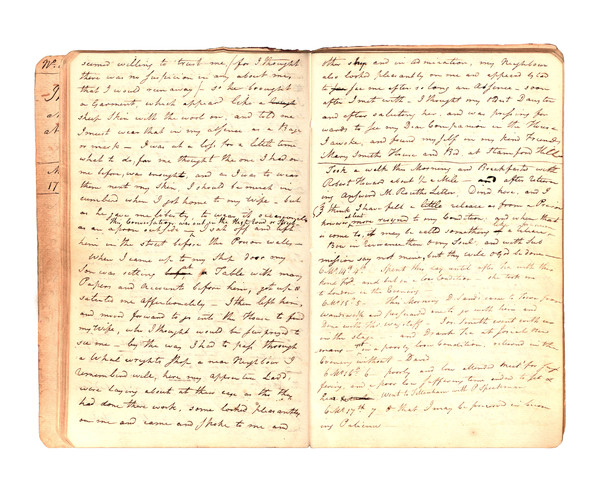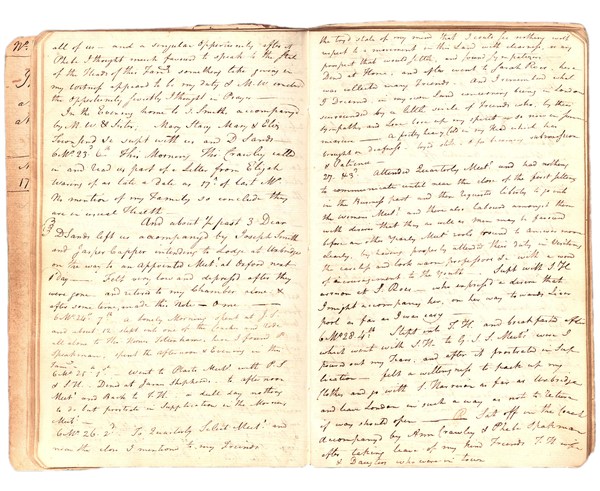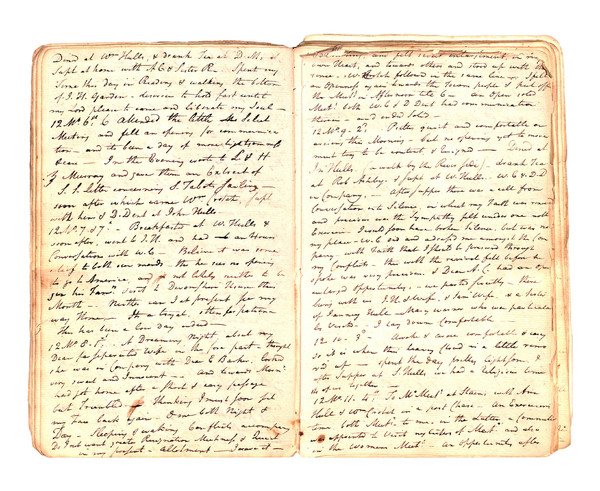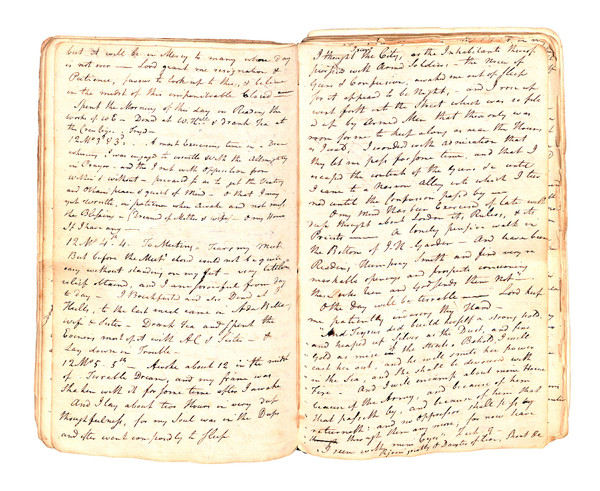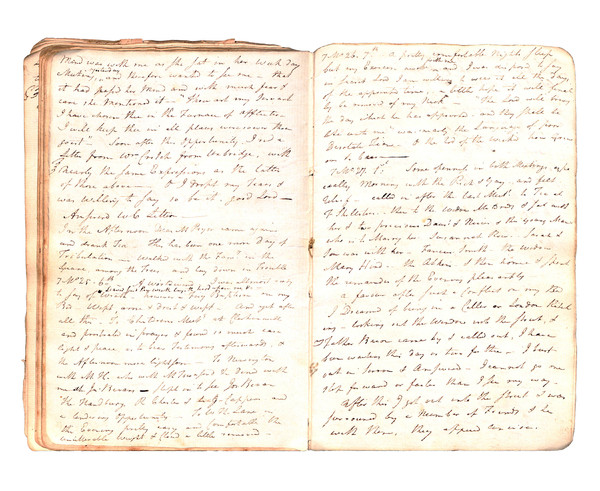Dreams
For centuries, Quakers considered dreams as intensly symbolic and to have prophetic potential—a practice that continues still today. Even before Freud’s theories of wish-fulfillment, Quakers had their own tradition of dream interpretation while other Christian denominations did not. Quakers developed a “unique symbolic language” to interpret dreams they considered important, but they also used non-denomination dream dictionaries as well (Gerona 24). While dreams were recorded in various different writing forms, one of the "most significant sources for dream records are the spiritual journals of ministering Friends, some of which were eventually printed. These journals usually followed a formula as they recounted the physical journeys and mental struggles of ministers, which often included a momentous dream or vision. Because ministers could expect their journals to be circulated and perhaps printed after their death, authors self-consciously styled their journals--and their dreams--to instruct future Quakers." (Gerona 28)
Scattergood had been acculturated to see dreams as meaningful, a form of guidance. Any reflections he may have had with respect to his dreams were more than likely to be steeped in a well-established methodology of interpretation. Unfortunately, Scattergood does not engage in dream interpretation in his writing, so his own opinions on his dreams are unknown. In this dream, Scattergood finds himself in a jail. Even so, rather than try to escape, he wanders deeper into the prison towards a "more confined space," until, with a great crash, all the doors are opened in front of him by the underjailer. He runs after a person who looks like his son and sees what looks like his home, then returns to the prison to ask for his freedom. The underjailer allows his to leave, so long as Scattergood wears a sheep-skin apron as a "badge or mark." When Scattergood finally leaves with his liberty, he encounters his son, then a near neighbor and apprentice, and finally one who he thinks is his eldest daughter. He is prevented from seeing his wife, the person whom he intends to find, in waking.
This dream seems to closely mirror his own situation in England, and possibly appeared as reassurance that Scattergood was to wait until receiving permission to leave. The "dark" countenance of the jailer and under-jailer are less clear; perhaps they served as a warning to be careful whom Scattergood sought his freedom from.
Scattergood recalls a dream of himself in London, which he had before going abroad. This reference sounds like a moment of déjà vu; in another sense, perhaps it is a validation of his time in England to feel the moment he is experiencing had been sent to him in a dream.
Dreams stand out, because they take on a story-telling quality that contrasts the plain writing of his daily entries. His longer dreams may relate earthly details of what he saw and did that are rarely found in his daily entires. These focus primarily on his spiritual state, and avoid making anything but the simplest note of his day. This is not to say that his dream writing is elaborately detailed; the style of story-telling is still plain and without frills. The dream in this example, however, is unsual for different reasons still. Here Scattergood chose to record a dream that reflects neither spiritual reflection nor guidance. Instead, it conveys the simple but powerful sentiment that he misses his wife--a wordly concern that is quite different from the spiritual matters of humility, supplication, and resignation that preoccupies Scattergood throughout his time in England. These matters have to do with God and his will, not with earthly needs for family and companionship.
In this dream, Scattergood found himself in the middle of a battle in "the City," which appears to be London. The soldiers in the streets allow him to pass safely by until he arrives at an alley, where he awaits until the "confusion" passed him by. While Scattergood seems to hint at reflection upon his dream--"O my Mind Has been Exercised of late with deep thought about London its Rulers & its Priests--he leaves only a reference to Zechariah 9 and the casting out of Tyrus in the quotation at the bottom of the page. If anything, it seems as though Scattergood may believe this dream to be a warning for London, though he himself is safe from that danger.
The explanation of Scattergood's location in this dream is strange enough. Either he is in a cellar--a dank, lower area of the house, as a dungeon is to a castle--or he finds himself in a kitchen, somewhere no more specific than London. His ambiguous surroundings separate him from his father-in-law, David Bacon, and then other Friends who appear shortly after. They all express their concern for Scattergood, which is not elaborated by Scattergood, but his response that he "cannot go one step forward or faster" than he already is suggests he is pressured to return home. The pressure Scattergood feels in this dream is external, whereas often we see his own inner desire to go back to Philadelphia. Through invoking the words of Christ, Scattergood managed to remove himself from the anxiousness of the others and woke up; while his faith may confine him from moving forward or faster, here it helps him to escape the physically enclosed space created by his friends.
